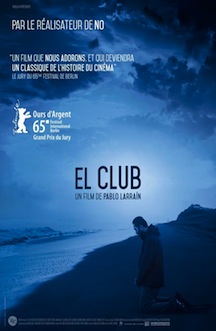Directed by Michael Thelin
Country: USA
“Emelie” is a wobbly thriller written by Rich Herbeck and directed by Michael Thelin. Both screenwriter and director work together on the source material, product of their own minds, in order to take it to the screen.
The film, unsettling at first, put you in a position of wondering what can possibly happen when you entrust your kids to someone you don’t really know.
The opening scene, intentionally shot at a considerable distance, makes us immediately alert by portraying an abduction of a babysitter who’s hauled into a car. Right after the opening credits, we follow Dan Thompson (Chris Beetem) driving, on his way to pick up the babysitter who will be taking care of his three children - Jacob, Sally, and Christopher - while he and his wife, Joyce (Susan Pourfar), go out to celebrate their anniversary.
The babysitter in question, Anna (Sarah Bolger), is not the regular one. She’s actually a stranger to the family. However, the Thompsons are pretty much certain that everything's going to be fine because Maggie (Elizabeth Jayne), the daily sitter of the house for many years now, was the one who recommended Anna.
The couple leaves the house, not before giving all the instructions and recommendations. Nevertheless, Anna simply neglects everything she was told, allowing an unsafe little chaos at home. Besides the permissive and often uncaring attitude toward the children, Anna, whose true name is Emelie and obviously has no experience with children, acts like a disturbed person, exhibiting an insolent pose of superiority and a reproachable perversity that intrigues. What is the decent creature that seated on the toilet asks an appalled 11-year-old kid to open up a tampon because she just had her period? Or starts watching a very private videotape with the embarrassed children by her side? Or make a poor little girl desperate when she gives her beloved fluffy hamster to be devoured by a snake? Or let the kids play with a real gun?
At this point, I was guessing that this frightening situation might be a revenge for something bad that one of the parents could have done in the past. This assumption gains some ground when we realize that another presence keeps watching the relaxed couple through the window of the restaurant.
One thing was clear, though. These children were under threat.
A sense of great responsibility falls on the courageous Jacob (Joshua Rush), who has to find a way to stop Emelie’s evil intentions, especially after noticing she had developed a strange obsession with the youngest of the siblings.
Mr. Thelin, who showed a flair for creating suspense, had done everything right until the beginning of the climax. In the film’s final section, a couple of misrepresented scenes were sufficient to make the whole story collapse. The direction failed exactly where it should have been sturdier to better play with our emotions. Instead, the key moments were set up in a rushed and oversimplified manner, pushing the film into precarious places rather than entertaining.
I dare to say this wasn’t lack of ambition from the director but the inexperience talking when it comes to handling influential material that will determine if your film has some validation or not. Regardless the admirable performances, “Emelie” would have overcome expectations if less schemed and more qualified in its execution.








































